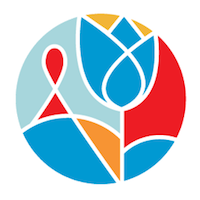
One of the primary objectives of AIDS 2018, the 22nd International AIDS Conference, is to explore evidence-informed HIV interventions designed for key populations: people with HIV, displaced populations, men who have sex with men (MSM), people in closed settings, people who use drugs, sex workers, transgender people, women and girls, and young people.
In recognition of this biannual meeting, being held this year in the Netherlands at the end of July, we highlight HRSA Ryan White HIV/AIDS Program (RWHAP) initiatives that are developing and disseminating evidence-informed interventions for U.S.-based programs. Our focus is on two groups particularly hard hit by HIV in the United States: minority MSM and youth.
MSM, Youth, and Viral Suppression
MSM comprise the majority of HIV/AIDS cases in the United States and nearly two thirds of clients served by the RWHAP. Young people ages 13-24 account for nearly one fourth of new U.S. HIV cases. HRSA has developed the following training and technical assistance initiatives to address outcome disparities in these groups. The overall proportion of RWHAP clients who achieved viral suppression has increased steadily from 2010 to 2016, from 69.5% in 2010 to 84.9% in 2016, according to HRSA data. Among MSM RWHAP clients, 86.1% achieved viral suppression. However, RWHAP clients ages 13-24 do not fare as well, with only 71.1% having achieved viral suppression.
Technical Assistance and Training for Programs Serving Minority MSM and Youth
Below is a summary of some HRSA-funded projects that include a focus on MSM, youth, or both populations.
Engaging Black MSM in Care
HRSA has supported numerous initiatives over the decades to enhance care delivery for hard-hit populations, including young African American gay/bisexual men.
Three of these initiatives are summarized below:
- The IHIP Project translates findings from HRSA HAB's SPNS projects into implementation tools and training resources for RWHAP grant recipients. The Innovative Approaches to Engaging Hard to Reach Populations package details successful, evidence-informed approaches for reaching and retaining young MSM of color.
- The His Health: Engaging Black MSM in HIV Careproject offers a compendium of evidence-informed care models, training modules on PrEP and other topics, and resources for enhanced linkage, retention, and engagement of Black MSM in quality HIV care. Resources are geared for providers and many offer continuing medical education (CME) and continuing nursing unit (CNU) credits.
- The Well Versed program (no longer available) is a conversation-starting resource for health care providers and Black MSM. This consumer-oriented website provides information and tools to help Black MSM get the most out of health care by being active and informed.
Health Literacy
In It Together, a National Health Literacy Project for Black MSM, is HRSA-supported project designed to increase health professionals’ understanding and use of health literacy to improve engagement and retention in HIV care and treatment.
Supporting Youth Living with HIV
The Building Futures project is identifying best practices for enhancing services to youth living with HIV ages 13-24, contributing to better outcomes in both retention and viral load suppression. The effort conducted site visits with 20 RWHAP-funded providers and focus groups with youth living with HIV at these sites.
Clinical Quality Management
The end+disparities ECHO Collaborative is a HRSA-supported national improvement initiative to measurably increase viral suppression rates for four disproportionately affected subpopulations of people with HIV among Ryan White HIV/AIDS Program recipients/subrecipients. The selected HIV subpopulations are African American Women and Latinas, MSM of Color, Transgender People, and Youth.
Research: Social Media and Youth Living with HIV
HRSA's Special Projects of National Significance (SPNS) has explored innovations in HIV care since 1991, addressing multiple issues and populations, with a special focus on youth. A current SPNS initiative -- Use of Social Media to Improve Engagement, Retention, and Health Outcomes along the HIV Care Continuum--is investigating social media interventions that can engage HIV-positive youth who are not in care to engage in such services.